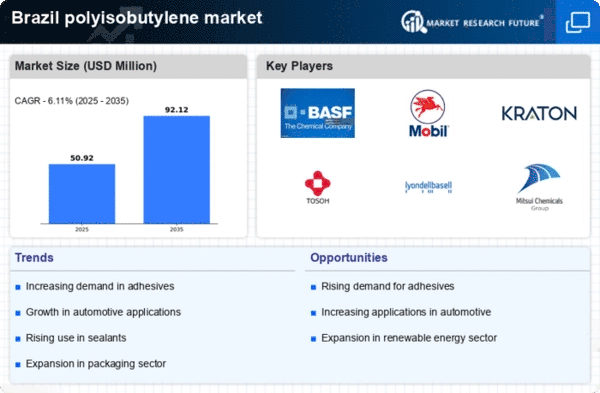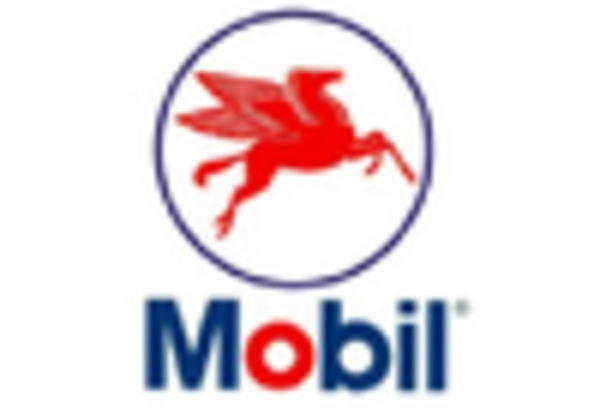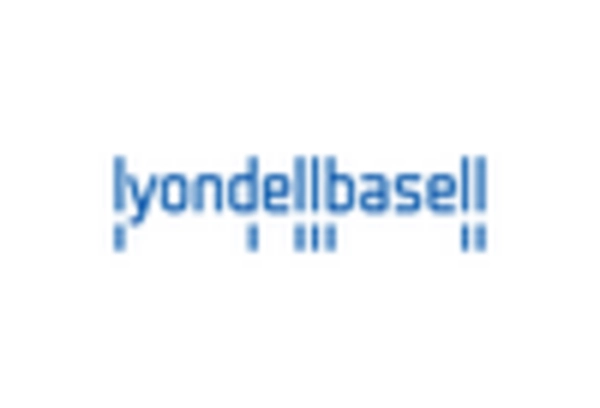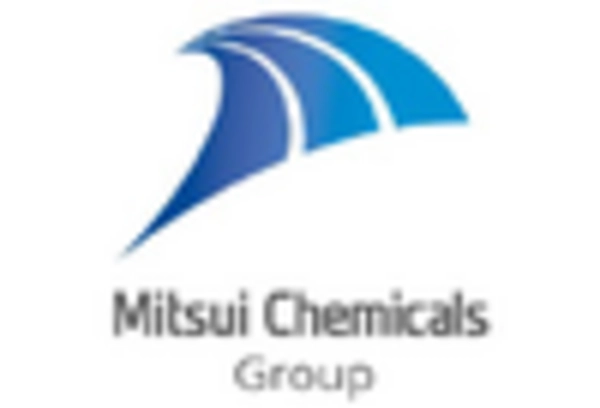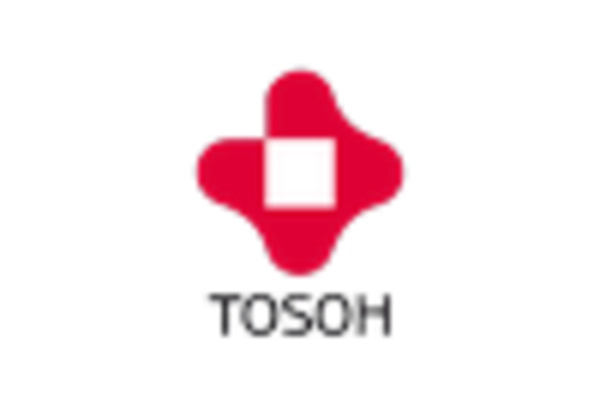The polyisobutylene market exhibits a competitive landscape characterized by a blend of established players and emerging innovators. Key growth drivers include increasing demand for adhesives, sealants, and automotive applications, alongside a growing emphasis on sustainability. Major companies such as BASF SE (Germany), ExxonMobil Chemical (US), and Kraton Corporation (US) are strategically positioned to leverage their extensive R&D capabilities and global reach. BASF SE (Germany) focuses on innovation in product development, particularly in bio-based polyisobutylene, while ExxonMobil Chemical (US) emphasizes operational efficiency and supply chain optimization. Kraton Corporation (US) is actively pursuing partnerships to enhance its product offerings, particularly in the renewable sector. Collectively, these strategies shape a competitive environment that is increasingly focused on sustainability and technological advancement.In terms of business tactics, companies are localizing manufacturing to reduce costs and improve supply chain resilience. The market structure appears moderately fragmented, with several key players holding substantial market shares. This fragmentation allows for competitive dynamics where innovation and customer service play pivotal roles. The collective influence of these players fosters a competitive atmosphere that encourages continuous improvement and adaptation to market demands.
In October BASF SE (Germany) announced the launch of a new line of bio-based polyisobutylene products aimed at reducing carbon footprints in various applications. This strategic move not only aligns with global sustainability trends but also positions BASF as a leader in eco-friendly solutions, potentially attracting environmentally conscious customers and partners. The introduction of these products may enhance BASF's market share and reinforce its commitment to sustainable practices.
In September ExxonMobil Chemical (US) unveiled a significant investment in its Brazilian manufacturing facilities, aimed at increasing production capacity for polyisobutylene. This investment is likely to bolster ExxonMobil's competitive edge by ensuring a more reliable supply chain and meeting the growing local demand. The expansion reflects a strategic focus on regional growth and operational efficiency, which could lead to enhanced profitability in the long term.
In August Kraton Corporation (US) entered into a strategic partnership with a local Brazilian firm to co-develop innovative polyisobutylene applications for the automotive sector. This collaboration is expected to leverage local expertise and market knowledge, potentially accelerating product development cycles and enhancing market penetration. Such partnerships may prove crucial in navigating the complexities of the Brazilian market, allowing Kraton to adapt swiftly to changing consumer preferences.
As of November current competitive trends in the polyisobutylene market are increasingly defined by digitalization, sustainability, and the integration of AI technologies. Strategic alliances are becoming more prevalent, enabling companies to pool resources and expertise to drive innovation. The competitive landscape is shifting from traditional price-based competition to a focus on technological advancements and supply chain reliability. This evolution suggests that companies that prioritize innovation and sustainability will likely emerge as leaders in the market, shaping the future of the polyisobutylene industry.


